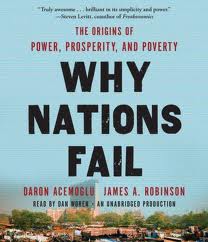
New research suggests that more money makes people act less human. Or at least less humane.
For a long time, primatologists have known that chimpanzees will act out social dominance with a special ferociousness, slapping hands, stamping feet, or “charging back and forth and dragging huge branches,” as Jane Goodall once wrote. And sociologists and anthropologists have explored the effects of hierarchy in tribes and groups. But psychology has only recently begun seriously investigating how having money, that major marker of status in the modern world, affects psychosocial behavior in the species Homo sapiens. By making real people temporarily very affluent, without regard to their actual economic circumstances and within the controlled environment of a psych lab, the Berkeley researchers aim to demonstrate the potency of that one variable. “Putting someone in a role where they’re more privileged and have more power in a game makes them behave like people who actually do have more power, more money, and more status,” says Paul Piff, the psychologist who designed the experiment. The Monopoly results, based on a year of watching inequitable games between pairs like Glasses and T-Shirt, have not yet been released. But Piff believes that they will support and amplify his previous provocative research.
Earlier this year, Piff, who is 30, published a paper in the Proceedings of the National Academy of Sciences that made him semi-famous. Titled “Higher Social Class Predicts Increased Unethical Behavior,” it showed through quizzes, online games, questionnaires, in-lab manipulations, and field studies that living high on the socioeconomic ladder can, colloquially speaking, dehumanize people. It can make them less ethical, more selfish, more insular, and less compassionate than other people. It can make them more likely, as Piff demonstrated in one of his experiments, to take candy from a bowl of sweets designated for children. “While having money doesn’t necessarily make anybody anything,” Piff says, “the rich are way more likely to prioritize their own self-interests above the interests of other people. It makes them more likely to exhibit characteristics that we would stereotypically associate with, say, assholes.”
Read the rest of this complete (6 pgs) article about the relation between Money and Empathy, here: MoneyEmpathyGap
 Socialism is better than capitalism. So say 20 percent of Americans, and another 27 percent say they can’t say which is better, according to an April 9 Rasmussen poll.
Socialism is better than capitalism. So say 20 percent of Americans, and another 27 percent say they can’t say which is better, according to an April 9 Rasmussen poll.





















